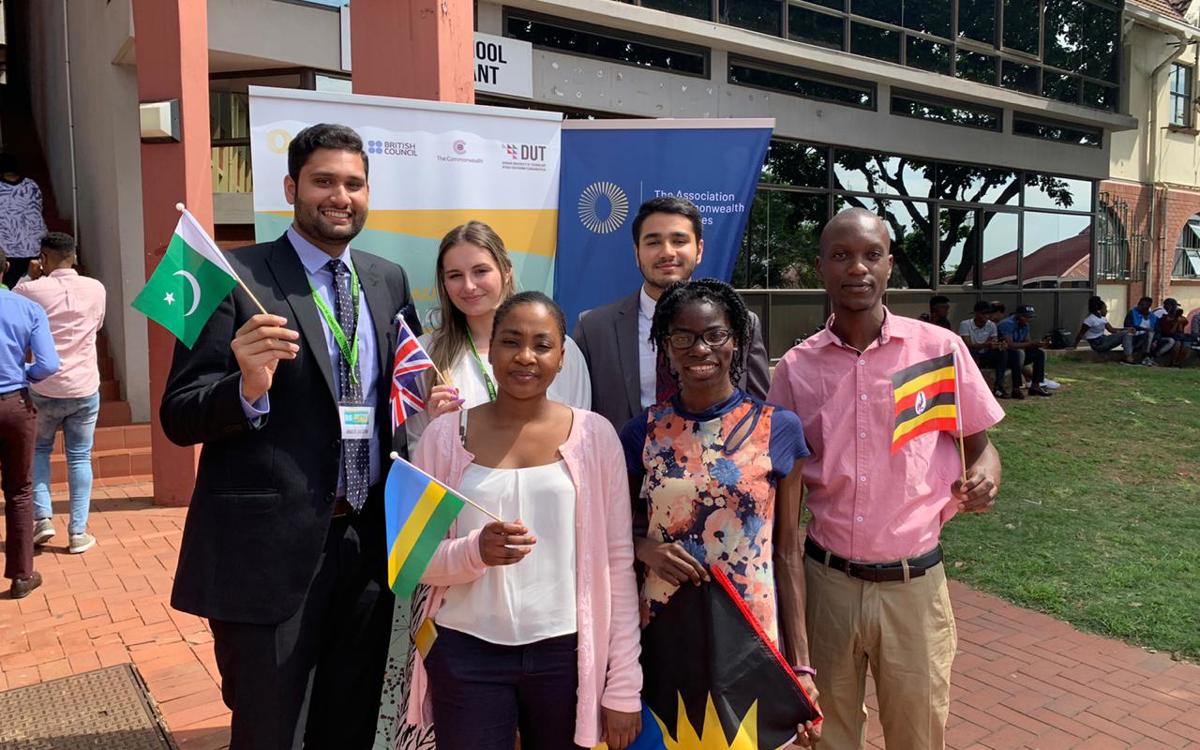Embracing peace at the Commonwealth Futures workshop

In India, I often see communal and ideological clashes that frequently turn violent and cause loss of life and property. These incidents occur because of a lack of understanding and familiarity with the other side. Peace is disrupted by the fear that stems from the lack of knowledge and familiarity of another’s culture, from the fear of the unknown.
Only when we understand one another, can we embrace and co-exist with each other. When the opportunity came to participate in the Commonwealth Futures Workshops, I jumped at the chance. To learn about different cultures and communities across the globe, from fellow student leaders, was an unprecedented opportunity. It would also be unique platform for student leaders from across the world to come together, discuss and debate solutions to global issues.
During the workshop, we were asked to address a global issue with our groups. My group decided to highlight the multi-faceted issues of gender-based violence. We discussed how acid attacks are a mode of systematic oppression, suppression of female autonomy and how, despite its heinous nature, the execution of proper policies to prevent them has not taken place. The impact of domestic violence on the mental health of not just the primary victim, but everyone around the incident was analysed. The social conditioning of ‘disempowerment’ that women are subjected to was critiqued and shown as a cause, as well as an effect, of the ever-lasting patriarchy. We offered a range of solutions, such as empowerment and skill development programmes to promote economic independence and autonomy. We also suggested introducing and efficiently executing campaigns for effective policy making. Gender-based violence stems from gender inequality, and to solve this century long problem, we recommended an extremely holistic and comprehensive approach.
During the workshops, I was surprised by how much the delegates could relate to each other’s struggles, challenges and motivators, even though we came from different parts of the world. Our societies are not as alien and different as our current leaders have us believe. One of my dearest friends at the Durban workshop was a Pakistani doctor from Karachi, and while walking down to the beach one evening, we were laughing about the scandal it would create in both our communities if we told them about our friendship.
I feel the more our generations know about the other, the closer they will get to achieving intercultural peace. It is important to collaborate and engage with those from different backgrounds, as it gives you chance to analyse and critique your own cultural biases and shortcomings. For example, one of the English delegates put forth the importance of the equal wages campaign in her country and was surprised to know that equal wage was not a very prominent issue in South Asian countries. I pointed out that this was because our countries are still struggling with preceding issues like reproductive rights and access to education for girls. It is only when we are aware of our differences that we can appreciate them and, more importantly, learn from them to build systems for ourselves. I have recently started a blog for my University titled ‘Global Citizens’, and I am already collaborating with my peers from the Commonwealth Futures workshops to contribute reflection pieces for it. I wish to build it as a platform for the confluence of diverse opinion, perspectives and thought processes from around the globe, and for people to have access to this source for diverse voices.
One thought that will stay with me, among others, following the Commonwealth Futures workshop is the unappreciated and underestimated value of peace in all facets of life. A speaker, in one of the sessions at DUT, was talking about what motivates young people to join gangs and embrace violent lifestyles. He said, “People who feel they cannot elevate or progress in life do whatever they can to get attention”. I think people can progress and utilise their full potential only when they are at peace with themselves, and their surroundings. And for that, they need to have a minimum basic quality of life available to them. As President Obama has emphasised multiple times, we need to create proper policies and systems which provide all people with a certain level of dignity in their lives. And only when one’s life has that minimum sense of dignity and quality; can they be at peace with themselves and aim to maximise their potential abilities.
